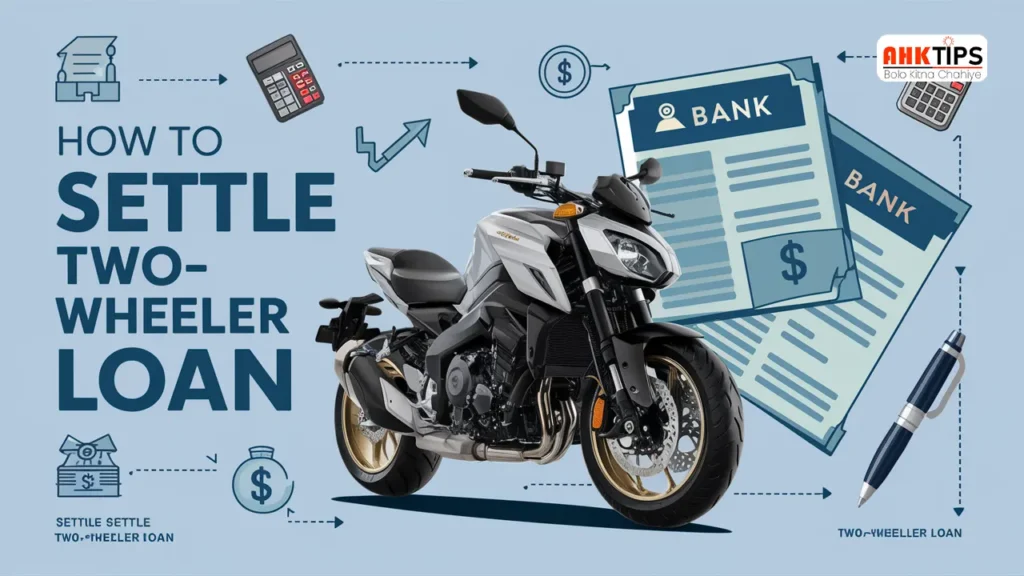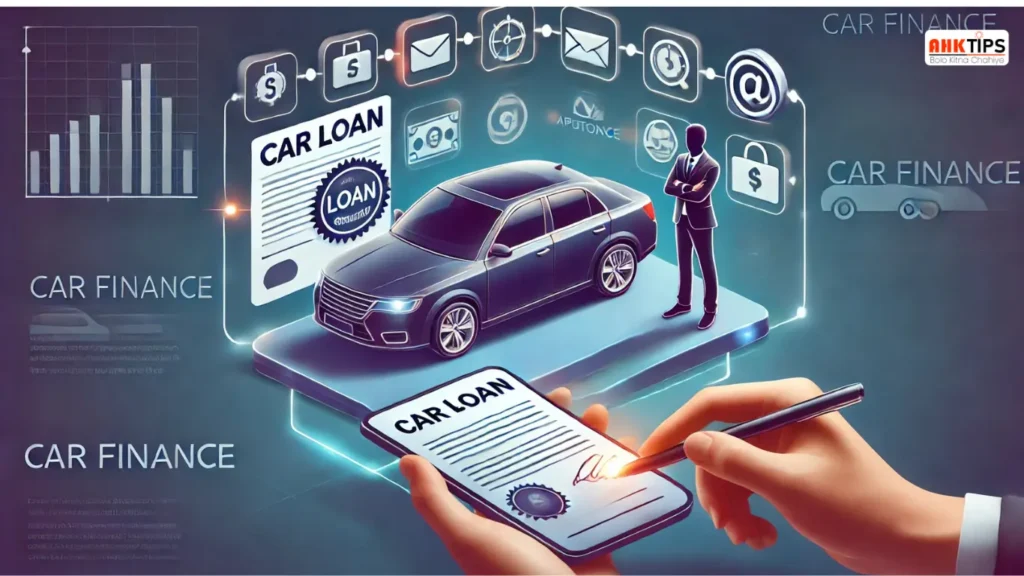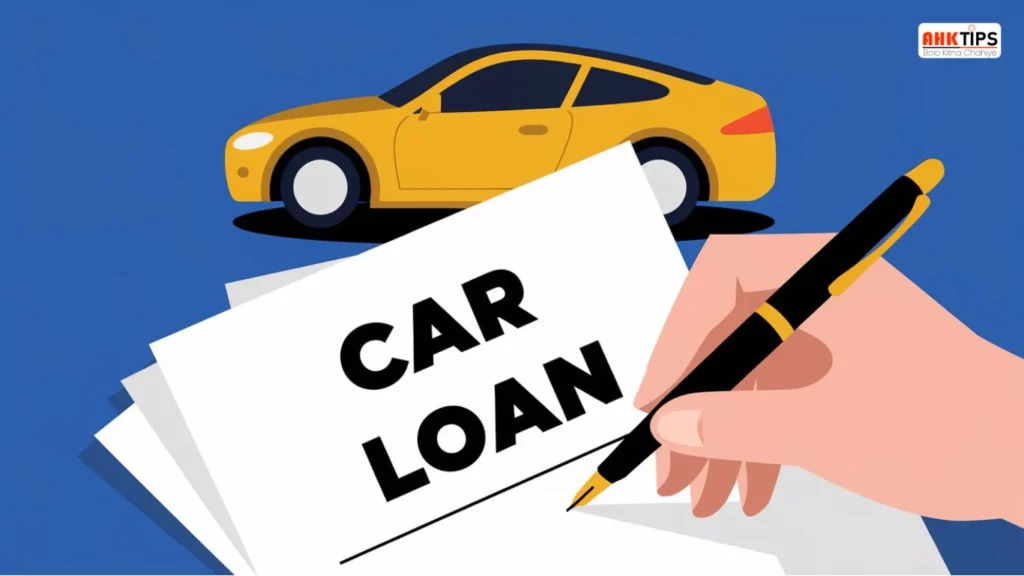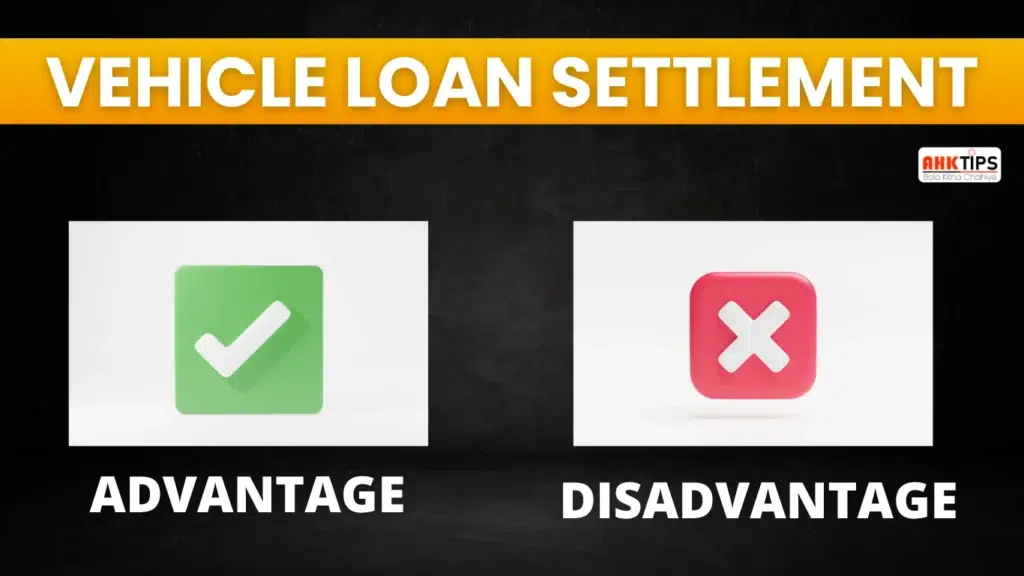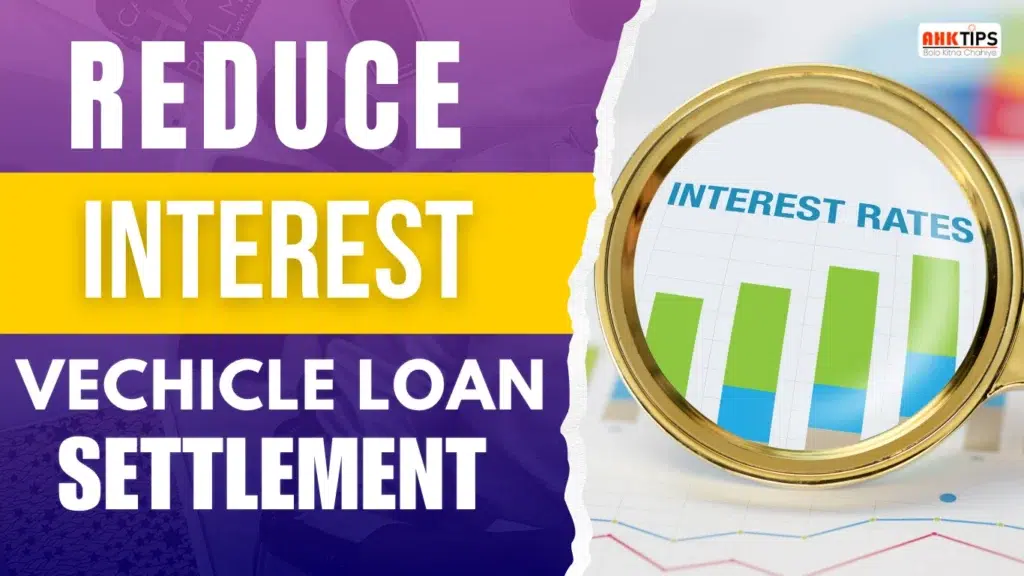Summary
Vehicle loan settlement can impact your income tax. This depends on whether the vehicle is for personal or business use. You can’t deduct interest or principal payments for personal-use vehicles. So, the tax impact is low. For those in business, the tax ramifications might be rather obvious, though. Early settlement often reduces tax-deductible interest on business-use vehicle loans. Selling the car could lead to capital gains or losses. It might also change or recapture depreciation claims. Prepayment penalties not tax-deductible could increase short-term tax expenses. Early settlement removes deductible interest. This raises taxable income, even as tax planning changes. Timing, tax advice, and good recordkeeping are key to managing settlement effects well. Understanding these factors guarantees smart financial and tax decisions.
Introduction
Securing a vehicle loan can provide quick financial relief. However, it may also have tax implications that many borrowers miss. Understanding how a vehicle loan settlement impacts your income tax is vital. This applies to both business and personal use. For personal-use vehicles, the tax effects are usually minor. If the vehicle is for business, think about interest deductions. Also, consider depreciation and any capital gains or losses when you sell it later. If you pay your loan late or early, it will impact your yearly deductions, taxable income, and tax schedule. Understanding these effects can help you follow tax rules, cut your taxes, and make wiser decisions. This book is especially useful for business owners. It explains how settlements affect taxes and how to manage deductions.
Impact of Vehicle Loan Settlement on Income Tax: What You Need to Know
In addition to your finances, settling a vehicle loan could change your income tax situation either early on in the loan term or at the end. There are important tax consequences to consider, even if many people focus on the immediate financial relief closing a loan provides. Knowing how the vehicle loan settlement tax impact works will help you to make better decisions about your loan and its long-term consequences on your taxes.
Vehicle Loan Settlement: General Tax Considerations
Particularly about the loan’s interest, principal, and vehicle use, several significant elements could have tax implications upon loan pay-off. These factors should be especially considered especially if you use the car for business purposes since different tax rules may apply.
Interest Paid on the Loan
The interest you pay on your car loan is one area with major tax influence. If the car is used just for personal use, most of the time, your income tax is not deducted from most of the interest paid towards the loan. On the other hand, if the car is used for business, the interest could be deductible and considered as a business cost.
Should you be self-employed or a business owner running a business travel by car, for example, you could be able to write off some of the interest as a business expense. This is only true, though, for the loan balance related to business use. Remember, you have to keep accurate records of the vehicle’s usage for business needs to be qualified for this deduction.
Principal Repayment
Usually, the loan’s principal amount has no direct bearing on your taxes. Regardless of your loan payback schedule, principal returns either at the end of the term or early loan payback offer no tax benefits. Though it is not deducted from your income, the principal payment reduces the outstanding loan balance.
Having said that, should you be using the vehicle for business use, you could still be able to write off other expenses, including depreciation, maintenance, and gasoline expense, since these directly relate to business use.
Vehicle Loan Settlement Tax Impact for Business Owners
For those who mostly use their car for business purposes, the vehicle loan settlement can cause extra tax problems. More exactly, here is how it operates:
Depreciation Deductions
Should the car be used for business, you could be claiming vehicle depreciation. When you pay back your loan and let you write off the cost of the car over its useful life, depreciation may directly affect you.
Once the loan and car are completely paid off, your depreciation deductions could have to change. You may have to recalculate the remaining depreciation should the car be paid off before its depreciation schedule ends. This could alter your entire tax liability, particularly in cases of past year claims for notable depreciation.
See a tax consultant to ensure your depreciation changes are in line with avoiding tax issues.
Capital Gains or Losses on Vehicle Sale
Once your vehicle loan is paid off, you might decide to sell it. The sale of a business vehicle could generate either a capital gain or a capital loss, depending on the selling price in respect to the current book value of a company vehicle, after depreciation. Should you sell the car for more than its book value, the difference is considered a capital gain and could cause taxes due. Conversely, should the car sell for less than its book value, you could suffer a capital loss, ss balancing other taxable gains.
This can drastically alter your whole tax liability, particularly if you have claimed depreciation over the years and have been using the car for business purposes.
Early Settlement vs. Late Settlement: Tax Differences
The timing of the settlement can also affect your taxes, whether you pay off your car loan early or at the end of the term.
Early Settlement
Early loan settlement could help you reduce the interest paid over the loan’s lifetime. Though this has financial benefits, it could have tax consequences regarding the deductibility of interest. If you are claiming business-related interest deductions, early loan pay-off could help to reduce the interest claims for that tax year.
However, it may also simplify your tax situation since, particularly if you plan to sell or discard the car, you might not have to record interest payments going forward.
Late Settlement
Should you pay the loan later in the term, you will have already paid a significant interest load. Should you have been claiming deductions for vehicle business use, over time, more deductible interest could result. However, you may find that the tax benefits from interest deductions are less significant as the loan draws to an end.
Tax Implications of Loan Settlement for Individuals Using the Vehicle for Personal Use
For those who use their car just for personal needs, the effect of the vehicle loan settlement tax is usually negligible. As was already mentioned, personal interest payments are not deducted from your income and principal returns have no tax implications. Finistically, though, if you pay off the loan early, you could simply save future interest expenses.
Final Thoughts on Vehicle Loan Settlement Tax Impact
Whether you are paying off a car loan early or at the end of its term, you should know how this decision will affect your taxes, particularly if you use the vehicle for business purposes. Key factors, including capital gains on vehicle sales, depreciation changes, and interest deductions, can affect your tax position.
Early Settlement of a Vehicle Loan: How It Can Alter Your Tax Liabilities
Early vehicle loan pay-off will help you achieve financial freedom and lower your total interest over time. But choosing to pay off a vehicle loan before its term ends could have major early vehicle loan settlement tax consequences. Knowing how this decision affects your taxes—interest deductions, prepayment penalties, taxable income—will help you decide wisely.
Key Tax Considerations in Early Vehicle Loan Settlement
Choosing early settlement of your vehicle loan may have several effects on your tax obligations, particularly if you have been claiming deductions for interest or running the vehicle for business use.
Interest Deduction Changes
The most important factor to take into account while early vehicle loan settlement is how it affects your interest deductions.
Personal Use Vehicles
Regarding interest deductions, there usually is no tax benefit for those who use the vehicle just for personal needs. Early loan pay-off lowers future interest rates, but it does not save taxes. Early settlement, in this case, therefore, mostly helps you financially by lowering your debt load.
Business Use Vehicles
Should you use the vehicle for business purposes, the loan’s interest paid is often deductible. Early settlement in this situation can help to lower the overall interest claimable as a business expense, so perhaps lowering your tax liability for the current year. You will not be able to deduct future interest in the next tax years, even if you might save on it now. This should be taken into account while developing your tax plan, particularly if the car is essential for the running of your company.
Prepayment Penalties
Many vehicle loan agreements include a prepayment penalty for early loan termination. This is usually done to reimburse the lender for the interest they would have collected should the loan be paid back using the original schedule.
Impact on Taxes:
Generally speaking, prepayment penalties are not deductible from your taxes. Although these fines raise your upfront payment, they offer no tax savings. If you’re using the car for business travel and the penalty is substantial, it could harm your current year’s business operations.
Should the prepayment penalty be significant, it is imperative to determine whether early loan settlement still provides a net advantage, considering this expense.
Changes to Depreciation Deductions
Early loan settlement could also have an impact on depreciation deductions for company owners running the vehicle for business purposes. Should you be claiming vehicle depreciation, early loan settlement could change the depreciation schedule.
Depreciation Adjustments
Early pay-off of a vehicle might force you to change your depreciation deductions. For instance, you might have to recapture depreciation should the car be completely paid off before its depreciation period ends. This implies that any claimed depreciation on the vehicle up to that point could be added back to your taxable income, so increasing your tax bill for that year. Should you sell or discard the car before its depreciation schedule ends, the recapture rule guarantees that you do not profit from tax deductions.
Potential Impact on Capital Gains or Losses
Should you choose to sell the car following early loan repayment, the capital gains or losses resulting from the sale could impact your tax position.
Capital Gain or Loss
Should the car have dropped noticeably, and you sell it for more than its book value, you could be eligible for a capital gain. On the other hand, you might suffer a capital loss should the selling price be less than its depreciated value. Depending on the sale price and the depreciated value of the car, the gain or loss would be liable for taxes.
Tracking the book value of the vehicle as well as any improvements done to it will help you determine your tax liability on any capital gains from the sale.
How Early Settlement Affects Taxable Income
One direct result of early settlement is how your annual taxable income is affected.
Reduction in Interest Payments
Early loan pay-off of your vehicle helps to reduce the interest you will pay over loan lifetime. If you have been deducting business-related vehicle interest, this declining interest could cause a small drop in your tax deductions. You won’t have those interest deductions to lower your income, thus your total taxable income may increase in the next years.
Taxable Business Income
Should you use the vehicle for business, you could forfeit interest deductions for the next tax season. Consequently, the loss of these deductions may cause your taxable business income to rise in the current year even while the balance of your vehicle loan declines. One should consider whether early loan repayment will eventually pay off more benefits than the temporary rise in taxable income.
Considering the Timing of Loan Settlement
The timing of your vehicle loan settlement can also influence the general tax impact.
Year-End Settlement
Should you pay off the loan at the end of the year, the interest deductions and any possible depreciation adjustments will apply to the tax returns for this current year. Early loan settlement could allow you more time to modify your tax plan for the following year, possibly including increased taxable income resulting from lost interest deductions.
Tax Planning
Loan settlement is smart for business owners to include in their overall tax planning scheme. Although early loan settlement would seem to be a wise financial move, you should carefully consider how it fits the tax year of your company and general objectives.
Examining these early vehicle loan settlement tax consequences helps you decide whether it would be wise to follow the original loan schedule or if early loan settlement would offer long-term financial and tax advantages. To grasp the subtleties unique to your circumstances, always think about seeing a tax professional.
Tax Deductions for Business Owners: The Role of Vehicle Loan Settlements
For those in business, vehicles are sometimes indispensable tools for daily operations. Whether it’s for client visits, delivery, or equipment transportation, buying and maintaining a vehicle can rapidly add up. Fortunately, many of these outlays—including those about financing and loan settlement—can provide significant tax advantages.
How Vehicle Loans Affect Business Tax Deductions
When a business owner funds a vehicle, the loan carries specific expenses—mostly interest payments—that might be qualified for tax deductions. These deductions, however, rely on the vehicle’s use and the method of expense recording.
Business vs. Personal Use
Whether the vehicle is used for business, personal use, or a mix of both determines mostly the tax treatment of vehicle-related expenses:
100% business use:
If the car is used just for business, most related expenses—including loan interest, gasoline, insurance, and maintenance—can be completely written off.
Mixed-use vehicles:
Should the vehicle be used for both personal and business purposes, only the amount connected to business use is deductible.
Supporting your claims depends on accurate documentation, such as trip records or mileage logs.
Interest on Vehicle Loans as a Tax Deduction
Interest paid on vehicle loans used to finance a business asset is among the most worthwhile deductions available. If a vehicle is used for business-related purposes, the IRS lets owners deduct the interest component of loan payments.
- Eligibility: On the loan, just the interest—not the principal—is deductible.
- Pro-rated deductions: For mixed-use vehicles, you have to figure and claim just the portion of the interest used for business purposes.
Early settlement of your vehicle loan could help to lower your overall interest paid, so lowering your interest deduction for the next tax season. By removing debt, this increases your cash flow even while it may reduce deductions.
Additional Vehicle-Related Tax Deductions
Apart from loan interest, business owners could deduct other vehicle costs, including:
- Depreciation: The cost of the car can be written off gradually as a business asset. This is particularly helpful whether the car was bought with loan funding or outright.
- Operating expenses: Claimable are fuel, oil, maintenance, repairs, insurance, and registration fees.
- Lease payments: Usually based on business-use percentage, lease payments—should the vehicle be leased instead of financed—may also be deductible.
How Loan Settlement Impacts Your Deductions
Changing your vehicle loan affects the way your continuous deductions are structured. The following describes:
Loss of Future Interest Deductions
You lose access to this deduction going forward, since once a loan is paid off, you no longer pay interest. Early settlement could result in a larger tax bill in the next years for company owners, depending on whether this offsets taxable income.
Continued Depreciation Claims
You can keep claiming depreciation on the car as long as it is in business use even after the loan is paid off. The settlement only influences interest deductions; the depreciation schedule—based on the useful life and method of deduction.
Potential Capital Gain on Sale
Should the car be sold following settlement, any profit above its depreciated value could be liable for taxes. Whether a capital gain or loss exists depends on accurate tracking of depreciation and sale value.
Best Practices for Tracking and Claiming Deductions
Accurate tracking and documentation are essential to fully enjoy business vehicle loan tax savings:
Maintain a Mileage Log
Record all business-related travel, including dates, reason, starting point, destination, and miles driven. This clarifies the proportion of business use.
Save All Receipts and Loan Documents
Record fuel purchases, maintenance expenses, insurance payments, loan agreements, and evidence of interest payments. These will help you to support your assertions should an audit take place.
Use Separate Accounts When Possible
Keeping personal and business expenses separate, pay vehicle-related expenses from a business bank account or credit card. This lowers the risk of mistakes and helps with recordkeeping.
Work With a Tax Professional
Business vehicle tax rules, as well as loan settlement tax law, can be complicated. Proper application of deductions, assurance of compliance, and development of a strategy balancing debt reduction with tax efficiency can all be assisted by a tax professional.
Conclusion
Settle a vehicle loan is more than a financial choice; it can also affect your taxes. For personal users, the tax effects are small. But for business owners, taxes can impact interest deductions, depreciation, and capital gains. An early loan settlement may reduce your interest tax deductions. But it can improve your cash flow. However, it may also mean fewer long-term tax savings. Selling a business vehicle after paying off the loan can impact your taxes. This effect depends on whether you gain or lose money from the sale. It is necessary to track vehicle use and keep it on record, and this is to assess if your settlement timing aligns correctly with your tax year. In business use situations, particularly, it is important to see a tax professional before making any settlement over a loan, rather than trying to remain compliant and reduce tax risk.
FAQ’s
Ans: Indeed, particularly in the case where the car is used for business. It can affect capital gains, depreciation, and interest deductions.
Ans: Generally speaking, prepayment penalties—even for business use—are not deductible.
Ans: You might have to recapture or adjust depreciation to raise your taxable income.
Ans: A capital gain is taxed whether sold for more than its depreciated worth. Should it sell for less, it could be considered a deductible capital loss.


